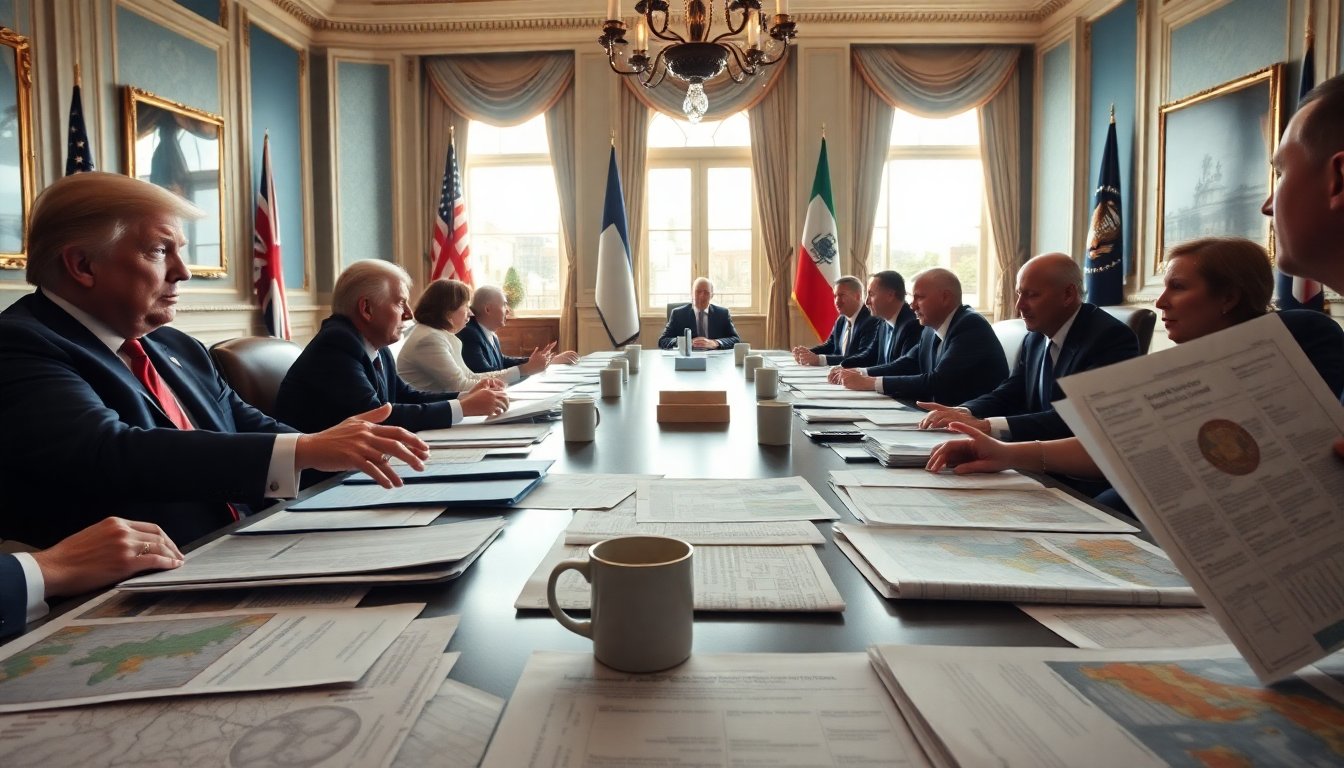Table of Contents
During Donald Trump’s second state visit to the United Kingdom, discussions highlighted the ongoing tensions between the United States and Western allies, particularly regarding Palestinian statehood and the war in Ukraine.
This visit not only appealed to Trump’s inclination for flattery but also raised significant questions about transatlantic relations. The divergent perspectives of the U.K. and Canada contrasted sharply with U.S. policy.
Palestinian Statehood Recognition
A key topic was the ongoing conflict in Gaza. British Prime Minister Keir Starmer announced plans for the U.K. to formally recognize a Palestinian state. This initiative will align with Canada and other Western allies, including Australia and France. The recognition comes amid escalating violence and humanitarian crises in the region.
U.S. Opposition to Recognition
In stark contrast, the Trump administration has voiced strong opposition to this initiative. Marco Rubio, the U.S. Secretary of State, warned that such recognition could jeopardize negotiations and embolden groups like Hamas. Rubio’s stance reflects the views of major Jewish organizations in Canada, the U.K., and Australia, which contend that recognizing Palestinian statehood could reward violence and undermine diplomatic efforts.
However, Starmer countered these arguments, asserting that recognition should be part of a broader strategy aimed at achieving lasting peace—a secure Israel alongside a viable Palestinian state. Trump, while acknowledging their disagreement, maintained a passive stance, refraining from action against the U.K.’s decision.
Implications for Canada and Trade Talks
The timing of this recognition is crucial, especially as Canada engages in discussions regarding the renewal of the Canada-U.S.-Mexico Agreement (CUSMA). Concerns arise that Canada’s position on Palestinian statehood could complicate these trade negotiations. However, Trump’s muted disagreement may suggest a less confrontational approach than expected.
Despite the U.S. administration’s reluctance to address the Gaza crisis complexities, many observers argue that Trump’s tacit acceptance of the U.K.’s position could pave the way for further international recognition of Palestinian statehood.
Shifts in Ukraine Policy
Another significant aspect of Trump’s U.K. visit was his evolving stance on the war in Ukraine. Initially, Trump dismissed Ukrainian President Volodymyr Zelenskyy’s concerns, suggesting he had no strategic advantages and should negotiate with Russia. However, he has since acknowledged the need for stronger European action against Russian aggression.
The Call for European Accountability
At a news conference, Trump emphasized the necessity for Europe to reduce its energy dependence on Russia to effectively counter its military actions in Ukraine. He noted that while European nations have made progress in reducing Russian fossil fuel imports since the invasion, purchases still persist. This dependency, he argued, inadvertently supports Russia’s war efforts.
Trump’s comments followed the European Union’s announcement of a new sanctions package aimed at further limiting Russian energy imports. Despite these efforts, skepticism remains regarding the sanctions’ actual impact on President Vladimir Putin’s actions. Observers highlight that Trump’s acknowledgment of the EU’s role in funding Russia’s military ambitions marks a significant shift in his rhetoric.
Domestic Political Implications for Starmer
This visit not only appealed to Trump’s inclination for flattery but also raised significant questions about transatlantic relations. The divergent perspectives of the U.K. and Canada contrasted sharply with U.S. policy.0
This visit not only appealed to Trump’s inclination for flattery but also raised significant questions about transatlantic relations. The divergent perspectives of the U.K. and Canada contrasted sharply with U.S. policy.1


